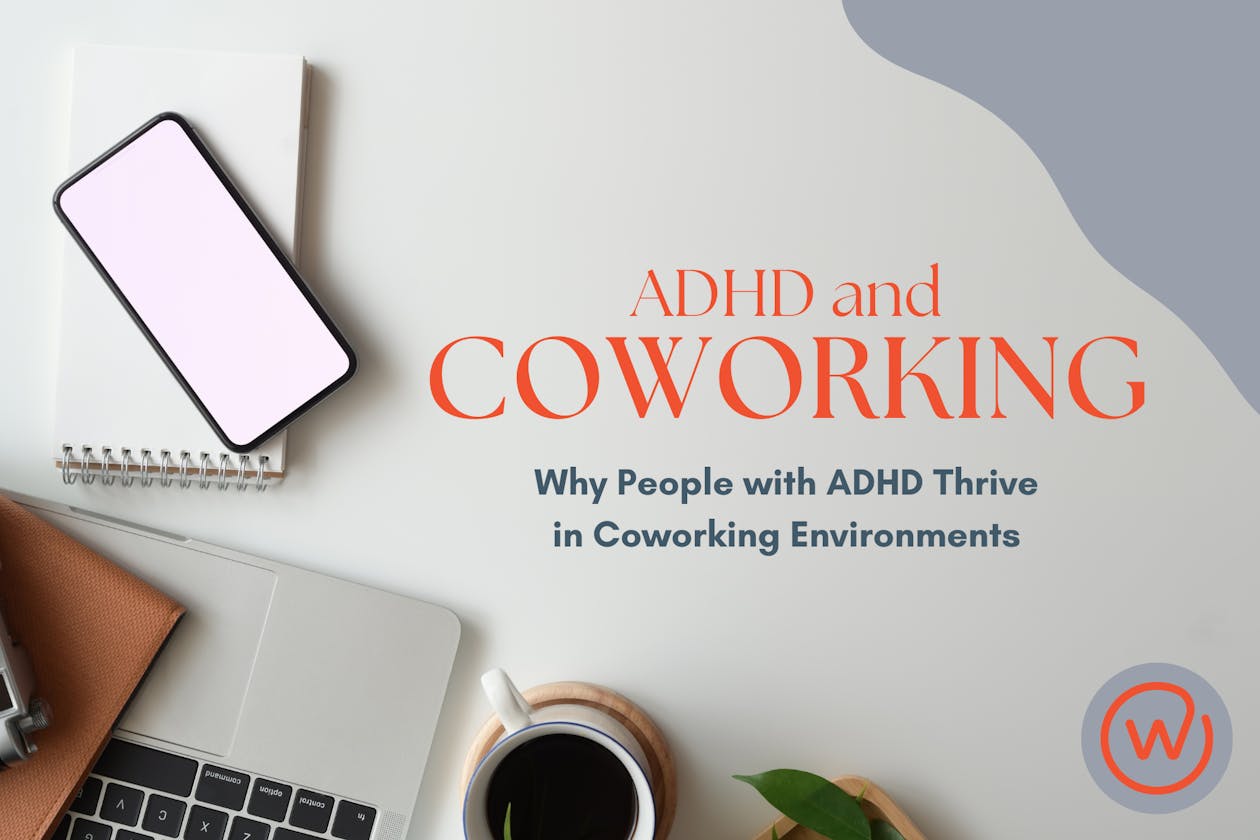
Why People with ADHD Thrive in Coworking Environments
2025-05-06
According to the CDC, an estimated 6.0% of adults in the U.S. have a current diagnosis of ADHD—that’s roughly one in 16 adults, or about 15.5 million people.
Adult ADHD can significantly impact careers, relationships, and day-to-day life. In fact, WebMD estimates that ADHD costs the U.S. economy up to $138 billion annually in lost income and productivity.
“The key to succeeding at work despite ADHD is to tailor your workplace environment to take the best advantage of your strengths (such as creativity or people skills), while minimizing the negative impact of your weaknesses,” says Royce Flippin of ADDitude.
Enter coworking.
Coworking spaces offer the flexibility and freedom to work when and where it suits you. Say goodbye to the rigid 9-to-5 grind and chaotic morning commutes. Say hello to the calm of a short, traffic-free trip to your local coworking space—and the option to socialize when you feel like it.
Private offices within coworking spaces provide a game-changing setup for adults with ADHD. Let’s face it—attention spans can be tricky, so minimizing distractions is key. Close the door to block out noise and movement. If your office has a window, position your desk to face a wall to reduce visual distractions. Keeping your workspace clutter-free is also helpful, but keep any tools or objects that help you focus (like a fidget item) easily accessible.
If hyperactivity is part of your experience, take full advantage of the ability to move throughout the day. Pace during phone calls. Opt for a space with a standing desk. Movement helps channel physical restlessness and supports better focus when sitting still becomes a challenge.
When you can escape the noise (and the long commute) of a busy, urban office and settle into a quiet, personalized space closer to home, you’re better able to do what you do best—whether that’s multitasking or honing in on the details. The result? Better mood, more energy, and greater motivation. Everything you need for an optimal work-life balance.
“For people to do their best work, we need to build in flexibility,” says Ellie Middleton, author of The Ultimate Guide to The Working World. Fortunately, more and more employers are recognizing that flexible schedules benefit everyone, not just those with ADHD. Allowing employees to work when they’re most focused and take breaks as needed leads to improved productivity, reduced burnout, and increased job satisfaction.
Add to that a coworking environment that fosters inclusivity, autonomy, and respect, and you’ve got a recipe for success.